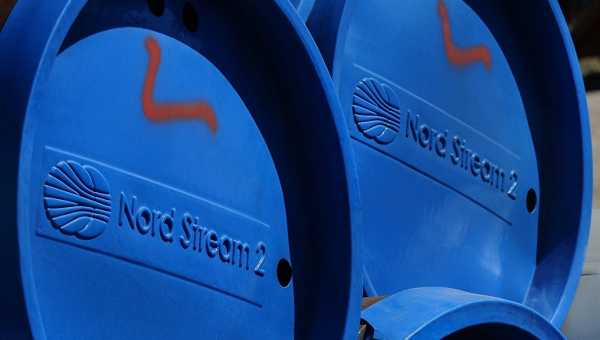
Washington has repeatedly criticised the Russian-European gas pipeline project Nord Stream 2, citing alleged security threats and suggesting that Europe would become too dependent on Moscow. The US Senate is considering imposing sanctions against its construction to hamper the venture, which is due to be finished this year.
The US attempt to hinder the pipeline project Nord Stream 2, set to deliver gas from Russia to Germany under the Baltic Sea, bypassing Ukraine, with sanctions might come too late, the American outlet Bloomberg suggests. While the construction of the undersea part is almost finished and the venture is expected to be put into operation by the end of 2019, the US Senate is still to vote on the sanction bill.
The outlet cites senior research fellow at Oxford Institute for Energy Studies Jonathan Stern, comparing these efforts with the Reagan administration’s attempt to limit Soviet gas exports in the early 1980s.
“They were resisted and ineffective then and I think we can expect the same result today. This all looks likely to be too late to be very significant since most of these pipelines have already been laid, unless the US attempts retroactive sanctions, which I think could really raise a storm on this side of the Atlantic”, the scholar predicted.
Trader form Alfa Energy Ltd. Wayne Bryan echoed this stance, noting that even though there “might be a bit of disruption”, the Senate’s attempt to hamper the construction is not likely to stop it. At the same time, the outlet points out that there are signals of heightened supply risk for 2020.
Last week, the US Senate Foreign Relations Committee moved forward with legislation to sanction the Western European energy concerns involved in the Nord Stream 2 pipeline project. Prior to last week’s announcement by the Senate, the Trump administration repeatedly indicated that it was considering sanctions against Nord Stream 2, a joint venture between Russia’s Gazprom and five European energy giants including Germany’s Uniper and Wintershall, Austria’s OMV, France’s Engie and the Anglo-Dutch Royal Dutch Shell.
The US has repeatedly stated its opposition towards the Moscow-initiated Nord Stream 2 project. In June, the US State Department noted that companies working in Russian energy exports could face restrictive measures, insisting that Russia’s Nord Stream 2 gas pipeline threatens the EU’s energy security and stability. In particular, US President Donald Trump lambasted Germany, saying that its heavy reliance on Russian oil and gas supplies was “inappropriate”, and called Berlin “a captive” of Russia.
Germany, as well as several other European countries, has advocated for the project, insisting that its purpose is solely economic. Russia has, for its part, stressed that US liquefied gas (LNG) suppliers were trying to force European consumers to buy more expensive gas, calling it a manifestation of “unfair competition”.
Sourse: sputniknews.com






